Perhaps best known as the home to Toronto, Niagara Falls, and Canada's capital city, Ottawa, Ontario, is a beautiful part of the world.
It's got breathtaking scenery, bustling cities packed with shops, restaurants, and plenty of nightlife and some stunning beaches. Ontario really does have it all, and it can be a great place to live, so long as you're ready for the varied weather!
If you've ever thought about moving to Canada, we've taken an in-depth look at why Ontario is, arguably, the place to be.
Secure Peace of Mind with Best-Value International Health Coverage
International Citizens Insurance provide free, no-obligation quotes from the leading international health insurance providers with plans tailored to meet your needs. Trusted by thousands of expats worldwide.
Living in Ontario - an overview
Over half of the people who emigrate to Canada choose Ontario as their new home. Why? Because the quality of life in Ontario is high. It is Canada's most populated province, but that doesn't stop Ontario from having heaps of outdoor space. It's an outstanding balance between city living and rural countryside.

Ontario generally has good job opportunities, and all the major towns are safe and clean and have good public facilities. It is culturally diverse and offers a lot of options for foreigners.
Ontario does have its fair share of tourist attractions, which means there are plenty of visitors year-round driving the economy. You'll find plenty of recreational activities as well as industrial areas. Life in Ontario is varied and exciting, and there really is something for everyone.
You'll have to get used to the vast distances. Ontario isn't small, and most locals think a five-hour drive is pretty short.
Unless you plan on living in one of the major cities of Toronto or Ottawa, you'll need a car to get around. You'll find life more enjoyable if you can get out into the beautiful Canadian wilderness.
Ontario is also a great place to live if you enjoy having a balance of seasons. Winters in Canada are famously cold, and even in the warmer southern parts, temperatures of -25 are not unusual. In the north, it gets even colder.
Be prepared for serious snow for six months of the year. But when summer arrives, temperatures regularly soar to over 30 degrees. If you are looking for somewhere that offers skiing in winter and beaches in summer, Ontario is one of the few places in the world where you'll be happy.
The cost of living in Ontario
Ontario is not a cheap place to live. There are some unavoidable costs that you'll need to prepare for.
Unless you have a car, transport will easily be one of your most significant expenses. The public transport system itself isn't costly, but you'll need to use it regularly—a single one-way ticket on public transport costs around CA$ 3.
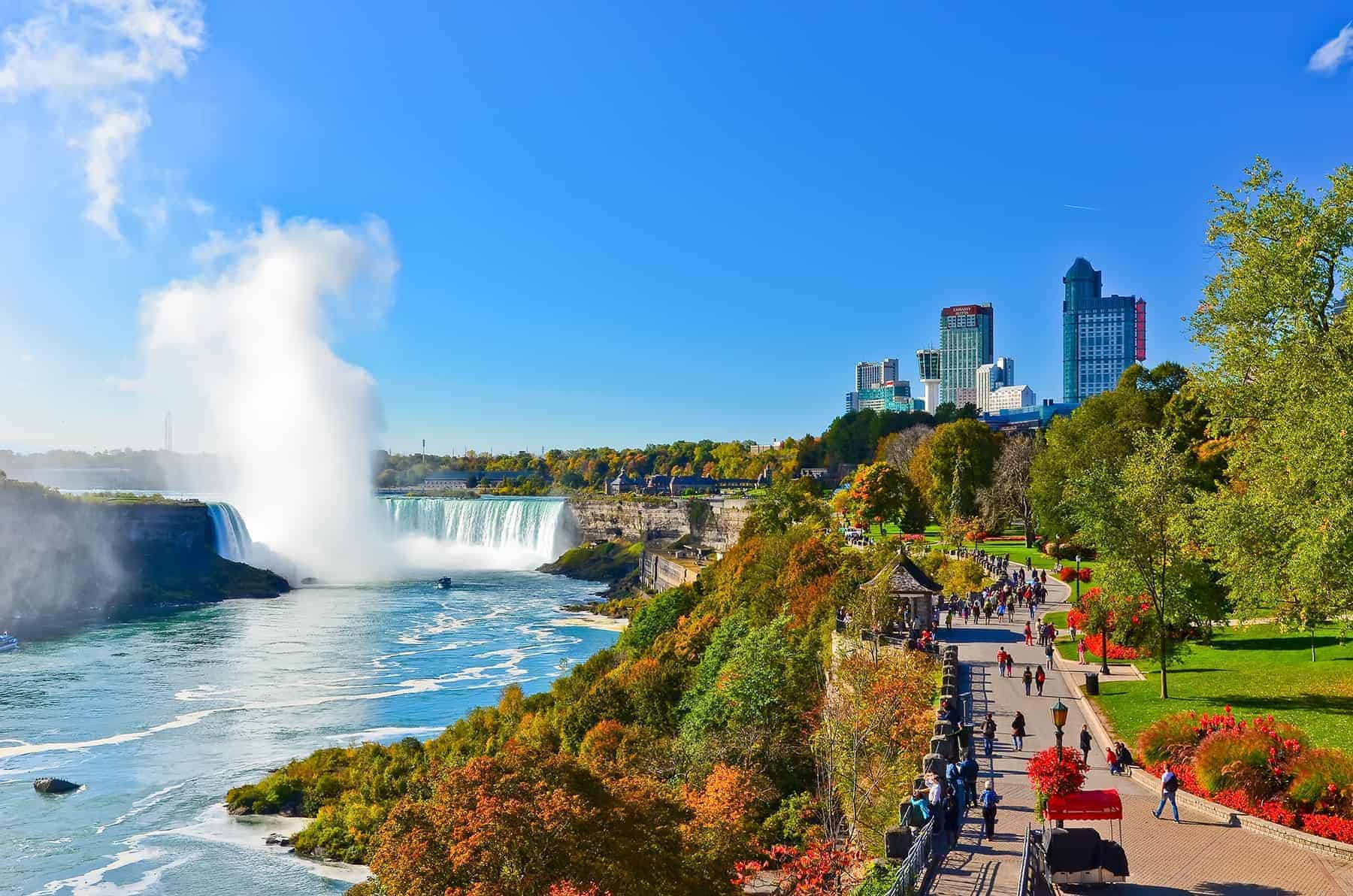
Of course, rent is a significant cost. If you're looking to live in a city, rent for a 1-bed apartment outside of the actual downtown area is around CA$1,900 a month. In the center of a city like Toronto or Ottawa, this can be as high as CA$ 2,600.
If you want more than two bedrooms to rent in the city center, you'll have to pay over CA$2,800, and you'll have to fight to find an apartment of this size. They are like gold dust.
Or you could head to Seaton Village in Toronto, where Meghan Markle used to live; house prices here are CA$700,000 as a minimum and can be up to CA$4 million.
If living in the country is more your style, you'll find things a bit more affordable. Most places to rent have gardens, and they are easy to find and generally less than $1,500 per month.
If you are looking to buy an apartment in a city, the cost can be over CA$ 5,800 per square meter. As with renting, you'll get more for your money outside the cities.
Generally, living costs in Ontario are reasonable. The province has excellent connections with plenty of airports, ports, and road access to the US, so importing goods isn't tricky. You might find essential items a bit pricier in the north as most economic activity is in the south.
Eating out is affordable in Ontario. There are loads of restaurants that offer food at a good price as well as a decent smattering of up-town places for fancier meals.
A decent three-course dinner plus wine for two will come in at around CA$95. Ontario also produces wine that is very high quality for the price. A good bottle should cost no more than CA$18.
Ontario has excellent employment opportunities if you are looking for work, so it's relatively easy to get a job that will support a decent lifestyle. The average annual salary in the province is CA$ 65,000.
Living in Ontario: the pros and cons
To help break it down for you, here are some of the pros and cons of living in Ontario.
The pros of living in Ontario
1. All four seasons
Ontario generally has very distinct seasons. If you like the contrast of seasons and want to enjoy both hot and cold weather, Ontario has super cold winters with snow, but you can sunbathe in summer.

2. Universal healthcare
Healthcare in Canada is called Medicare, and it is universal. This means that you can access lifesaving treatments in Ontario and across the rest of Canada without worrying about finances.
In all of Ontario's major cities, you'll find exceptional hospitals, including the Toronto General, which has been voted one of Canada's best hospitals.
3. Excellent employment opportunities
Although some of the more remote villages have few employment opportunities, the major cities, and towns are economically powerful. Unless you live in the wild, commuting is pretty straightforward, so if you plan to find a job after you move, Ontario is one of the better provinces for finding work.
4. Great education
When it comes to education, Ontario has a lot to offer. Public schools are generally considered very good, but private schools are in the major cities. There are also multiple high-quality universities for further education, including Western, Queens, Toronto, and Waterloo.
5. Relatively safe
Ontario has a relatively low crime rate. In the big cities, you might find a few instances of petty theft, but generally, the whole province is considered pretty safe. There isn't much discrimination, and even a woman walking alone at night isn't too dangerous in most places.
6. Outstanding outdoors

Canada is known for its beautiful wilderness and wildlife. If you like the outdoors, Canada is a huge playground. There are water sports, hiking, trail running, skiing, snowshoeing, husky sledding, baseball, basketball, skating, and, of course, ice hockey.
The cons of living in Ontario
1. Winter is cold
Yes, Canada does have a really nice, snowy winter season. But it's long; you will need proper winter gear, and after five months of below-freezing temperatures, it can be frustrating.
2. Flying is expensive
Aside from some very long road trips, traveling around the province and to the rest of Canada is not cheap. There are Greyhound buses that are super affordable, but it takes days (and long nights) to get anywhere.
3. City life can be pricey
While living in the country is pretty inexpensive, living in the major cities of Toronto and Ottawa can be expensive. Rent is definitely not cheap. Public transport costs mount up quickly, and eating out can add up fast.
4. Country life can be isolating
If you choose to live outside of the major cities, you need to be happy in your own company. Canada has lots of wilderness, and if you aren't used to living in the country, it can be a shock. Shops and restaurants can be minimal, and it can feel even more isolated in winter.
5. You'll lose your credit score
When you move to Canada officially, you'll lose your existing credit score. Of course, this could be good if you have a terrible score, but if you've worked hard to get a good score, you'll need to start from scratch. You'll want to take out credit cards asap if you plan on getting a mortgage.
Immigrating to Ontario
Compared to some of the other provinces that barely accept immigrants, Ontario is reasonably open to receiving new residents. However, this doesn't mean you can just pick up your stuff and jump on a plane. There are some hoops to jump through before you move.
First, you will need a visa. Citizens of certain countries, including the U.S. and the U.K., can stay for up to six months in any 12 without a visa. If you plan on staying more than this, you need a visa, even if it's just a tourist one. These are easy to come by if you are working or studying for a specific amount of time.
However, if you plan on moving full-time, you can try the Ontario Immigrant Nominee Program (OINP). This program will help you move if you have specific skills that are needed in the province. Currently, this means computer skills, nursing, and finance. The list changes as and when the economy needs it, so it's worth checking regularly.
Alternatively, you can try the Federal Skilled Worker Program. This point-based system will give you a visa if you score over 67 points. Everything from age, occupation, education, language, and transferrable skills is evaluated.
Everything else is standard. You'll need to prove you have money or a way of making money. You'll need identification documents and medical papers, proof you have no criminal record and passport-style photos.
- Canada Visa Guide - all about Canadian immigration programs, visa types, and how to get the visa you need.
Where to Live in Ontario
If you like the sound of living in Ontario but aren't sure what is the best place for you, we've picked five of our favorite places to live. Ontario has lots of variety, so whether you like the bustle of an inner city or want to live a quiet life, there is a place for you.
Toronto
Toronto vies with Vancouver on the west coast for being the busiest, most cosmopolitan city in Canada. Downtown Toronto is often used in films and TV as a replacement for New York City. It's very modern, with its fair share of tourists and a snazzy business district.

However, as you move away from the city center, lots of villages have been swallowed up by the growing city. Each town has become a suburb with all the connections to downtown but keeping a village-like charm.
Old Town and the distillery district are particularly charming and host an incredible Christmas market.
Choosing the best area to live in Toronto depends on whether you are moving with children, are a student or a young professional, or a retiree. In any case, Toronto has something for everyone.
Sitting on Lake Ontario, Toronto has a fresh, fun vibe with a vibrant waterfront and on-lake activities. Toronto really is like New York but cheaper and with slightly fewer tourists.
To get a taste of how fun Toronto is, you just need to visit the Rogers Stadium on a Blue Jays gameday; fun and exciting but with a laid-back attitude.
Hamilton
If you want the convenience of Toronto without living in a big city, Hamilton is the next best option.
It's located further along the shores of the lake than Toronto, so you can look across the water at the Toronto skyline. Connections to the city and public transport are fantastic.
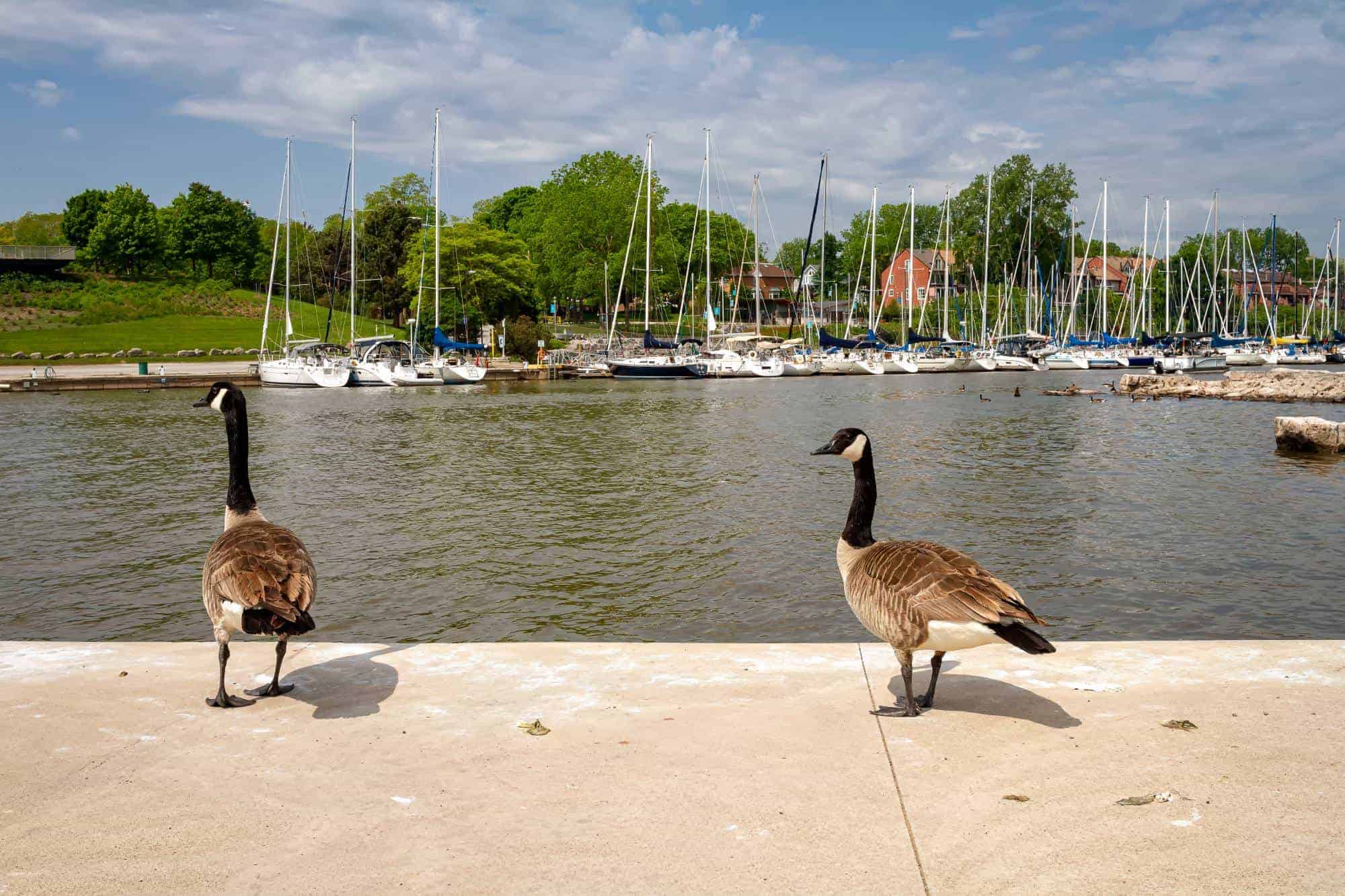
Hamilton is not the cheapest place to live. But it isn't costly either, and there are plenty of job opportunities as well as an easy commute to Toronto. There is also a great university, and because of all the students, there are plenty of bars, and the city has a really creative vibe.
Rent is pretty cheap compared to other similar cities, which means Hamilton attracts a young family crowd.
It lacks the diversity and multiculturalism of other major cities but is still considered safe, and there is no real discrimination.
It has all the amenities you need and plenty of outdoor space. A lot of people have pets here, as most properties have gardens.
Ottawa
Canada's capital is hugely underrated. Ottawa is beautifully stunning, inexpensive, and has a lot to offer.
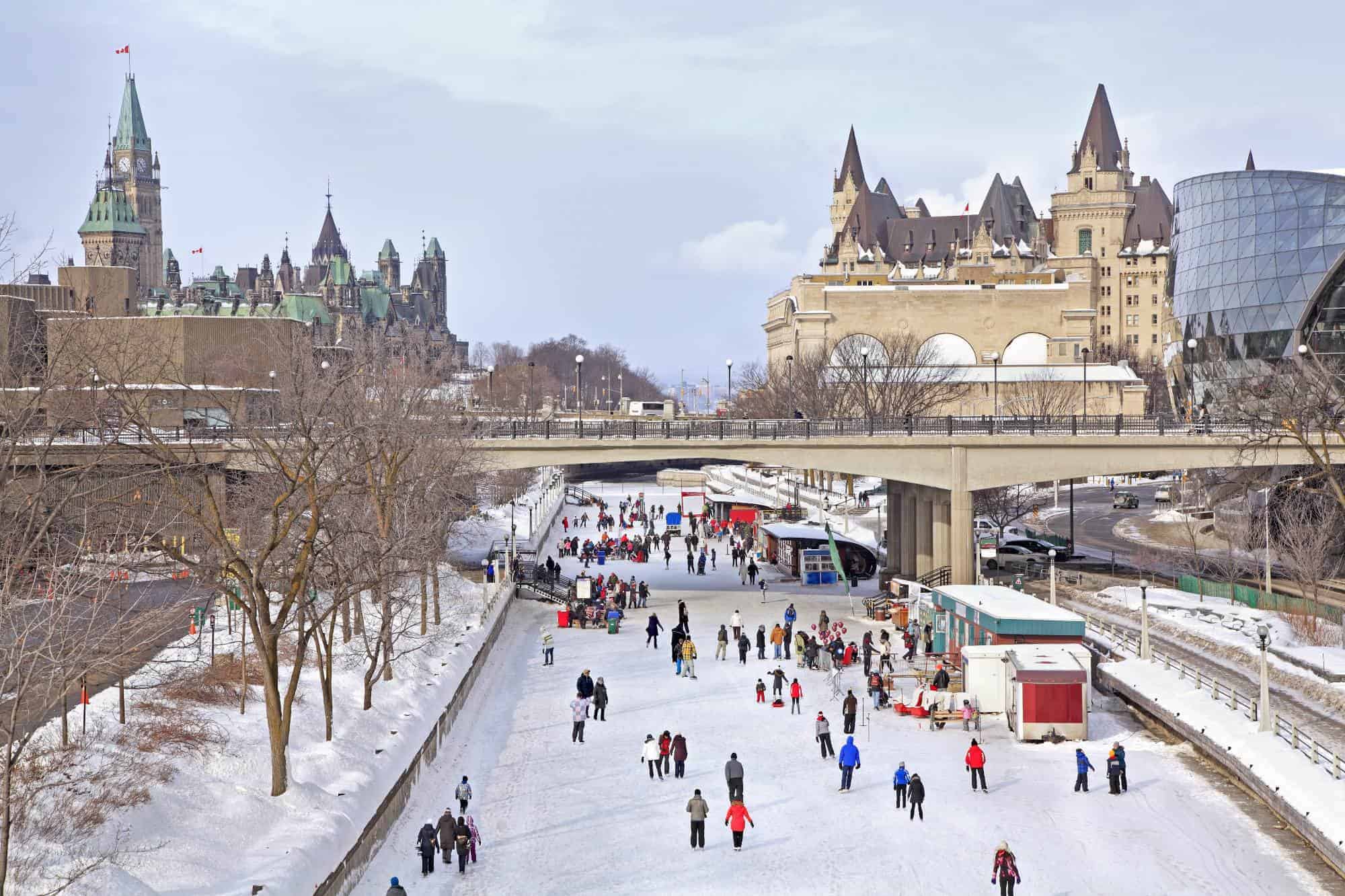
If you want to live in a city but don't want the buzz of Toronto, Ottawa is one of the best cities in Canada. It's actually ranked as one of Canada's cleanest, safest cities and was voted the second-best city to live in North America.
Ottawa is hugely international with a solid community spirit, and the neighborhoods are really well-defined. New Edinburgh and Rockcliffe Park are home to doctors and lawyers, while Sandy Hill, Lower Town, and Vanier are great for young people. There is also a strong artistic, bohemian feel in some places.
One of the best things about winter in Ottawa is that the massive Rideau Canal freezes entirely and turns into the world's largest skating rink. You can even use it to skate to work.
Thunder Bay
Situated in the northwest of Ontario, Thunder Bay is a decent size, which means you'll never feel like you're missing anything.
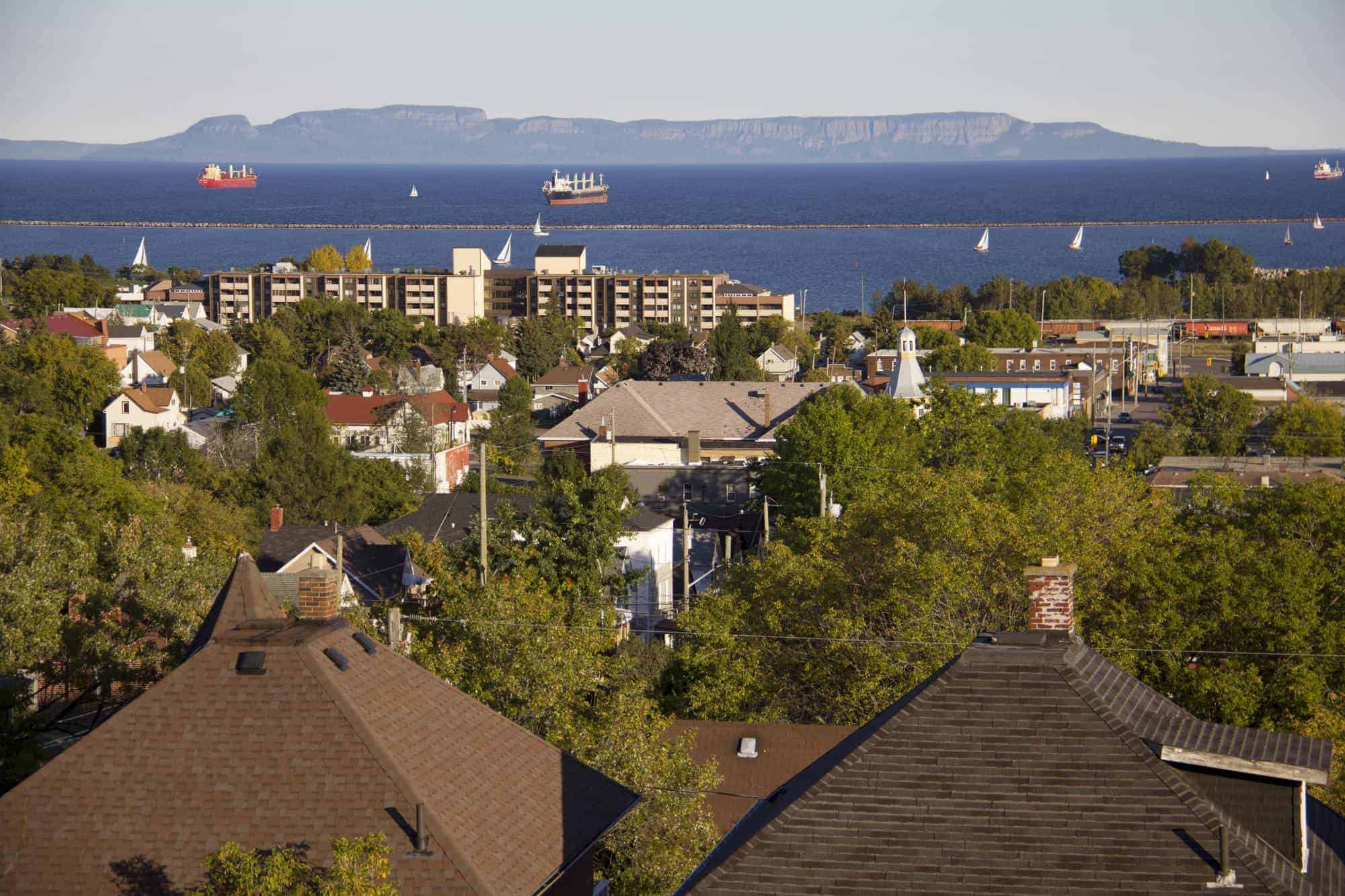
If you like the quiet life and enjoy time in the outdoors but still like the conveniences of a city, Thunder Bay is for you. It's on the edge of Lake Superior and is surrounded by national parks, so you'll be dying to spend time outside. There's lots of hiking, canoeing, skiing, waterfalls, and wildlife.
Thunder Bay actually offers many job opportunities for such a modest-sized city, and unemployment here is pretty low. It's a growing community with strong ties to the indigenous Canadian peoples, which means racism and discrimination are uncommon.
Public transport is good within the city, but if you plan on moving around more than that, you will 100% need a car.
Manitoulin Island
If you are planning to retire to Canada or move there as self-employed, the Manitoulin Islands are a beautiful place to live.
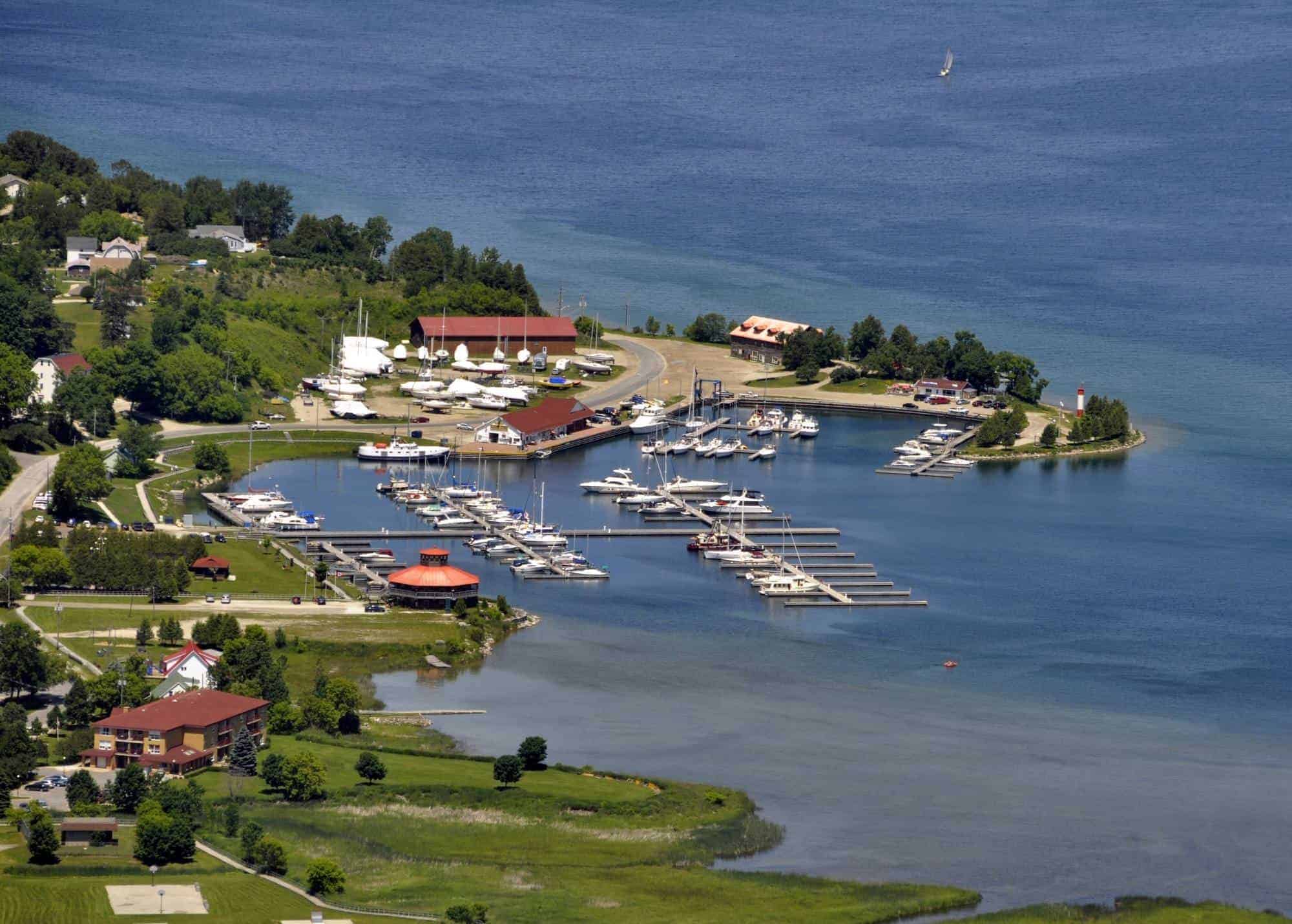
Employment opportunities aren't that great, so think about that before you move.
The islands are super rural, which means that while you can find everything you need, it's not the place to go if shopping is one of your main hobbies. But if you want a quiet, calm, peaceful outdoor life, there is nowhere better.
The islands have a large First Nations population, so you should make sure you aren't disrespectful to any native Canadian customs or practices. But everyone is super friendly, and the locals are one big community, so you'll have no problem fitting in and making friends.
Daily life is inexpensive until you want to import large items, which usually have to come by boat or plane. Try to bring as much with you as you can.
Living in Ontario vs. Quebec
Putting it simply, there are two significant differences: the weather and the language. French is one of Canada's national languages (English is the other). Living in Quebec means most of your neighbors will be totally bilingual. And the language really is used interchangeably. The good news is it's rare to come across someone who doesn't speak English.
There is also no denying that Quebec is slightly colder. In winter, it can drop as low as -30 in Montreal, whereas Toronto generally averages around -20. Either way, you'll need a proper coat.
Ontario really feels Canadian-edging-slightly-closer-to-American culture. Quebec, perhaps thanks to its French heritage, definitely sits closer to the European side. It has a somewhat richer history, and you'll find more old buildings in Montreal. Quebec City even has its own Chateau.
If you are worried about a coming culture shock, read our guide on adapting to Canadian culture, it will help you understand what to expect.
In terms of living costs, it really depends on how close to the major cities you live. Ontario is slightly more accessible, so you'll find imported items are cheaper. However, once you get into Toronto territory on the shores of the lake, prices jump.
Both Toronto and Ottawa are more expensive than Montreal or Quebec City, but you can't exactly call Montreal cheap.
If you're unsure which one you'll like more, head to Ottawa. It sits right on the border, and it's kind of the best of both worlds. From there, connections are great to go both east and west and explore.
Taxes in Ontario
Ontario has excellent infrastructure and public investment. However, this comes with a price. Taxes are generally slightly higher in Ontario than in some other provinces, but they aren't outrageous.

You can see a full list of taxes on the official website. Most of the tariffs won't apply to you unless you work in a specific field—for example, mining tax. And most taxes will be automatically deducted from your paycheque.
You can work with a financial advisor to find ways to legally minimize your tax payments. It's worth investing in professional advice before you move so any financial assets you have can be declared. If you aren't resident, messing up your tax is a quick way to get your visa denied.
Of course, the most common tax is the income tax, which is made of the federal rates plus the provincial rates.
The following are the provincial rates for Ontario:
- 5.05% on the first $45,142 of taxable income, +
- 9.15% on the next $45,145, +
- 11.16% on the next $59,713, +
- 12.16% on the next $70,000, +
- 13.16% on the amount over $220,000
- What You Need To Know About Canada Federal Taxes
Health insurance in Ontario
We mentioned it earlier, but it's worth reiterating: healthcare in Canada is universal.
All Canadians have access to public healthcare, but it isn't totally free. The Canadian healthcare system, Medicare, actually started in Ontario. And the province still has excellent healthcare.
Around 70% of medical procedures and medication is funded by the Medicare system. The remaining 30% is private health insurance which is widely available. Generally, people only go private when waiting lists are long.
You'll need to get an OHIP healthcare card. You can apply online, and you will need your visa information.
If you are an Ontario resident, you pay the health premium - an addition to the income tax that helps fund Ontario’s health services.
The health premium ranges from CA$0 if your taxable income is CA$20,000 or less, to CA$900 if your taxable income is more than CA$200,600.
In most cases, the premium is automatically deducted from your pay or pension. If you are self-employed and earn over CA$ 20,000, you pay the health premium when you file your annual tax return with the Canada Revenue Agency (CRA).
Private health insurance in Canada works much the same as it does in other countries. You can pay for private insurance as some procedures are not covered by the public system. However, the main reason for private healthcare is to avoid waiting times. Ontario has excellent healthcare facilities, but the waiting times can be several months.
Final thoughts on living in Ontario
Life in Ontario can be fantastic. It's got great connections, outstanding infrastructure, and of course, the incredible Canadian wilderness.
If you enjoy an active, outdoor life, Ontario has a lot to offer. You'll be able to enjoy skiing in the winter months and water skiing in the summer on the lakes.
The major cities of Toronto and Ottawa are hot spots for modern city life, and the surrounding towns offer a high quality of life.
Ontario has something for everyone. The fantastic immigration system means that if you've dreamed of a life in one of Canada's most popular provinces, it is feasible for most people.
We'd highly recommend spending some time in Ontario to work out if you want to live a city life, country life, or somewhere in the middle.
Upon arriving in Ontario, you'll soon find out there is much more to Canada than just ice hockey and maple syrup. But if you're looking to make friends with Canadians, ice hockey and maple syrup are good conversation starters!
You might find useful:
- Living In Canada – a detailed guide for expats on moving and settling down in Canada
- Best Places To Live In Canada
- Canada Visa – How To Move To Canada As A Skilled Person
- Which Is The Best Province To Live In Canada?
Helpful external links:
- Information about government services and programs - ontario.ca
- Ontario Health Services - ontariohealth.ca
Secure Peace of Mind with Best-Value International Health Coverage
International Citizens Insurance provide free, no-obligation quotes from the leading international health insurance providers with plans tailored to meet your needs. Trusted by thousands of expats worldwide.




